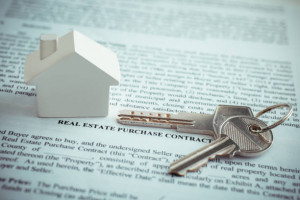4 Ways to Ensure You're Getting a Good Deal on Your Home
Posted on 29/05/2024 2:47 PM | by NaijaHouses

By Blessing Clement
Buying or selling a home can be a perplexing process. It's likely the biggest purchase you'll ever make, yet the numbers involved can often feel arbitrary. Selling is no less daunting; with high stakes and a tough market, it’s easy to worry about underselling. Here’s how you can ensure you’re getting a good deal, whether you’re buying or selling a home.
- Define What a 'Good Deal' Means to You
Understanding what constitutes a good deal is subjective. For buyers, it might mean securing a dream home within budget, snagging a house for less than its previous sale price, or gaining instant equity by purchasing below market value. Sellers might prioritize a quick sale to take advantage of low prices and interest rates, maximizing profit, or simply offloading the property to avoid financial strain.
Everyone’s definition of a good deal is different because real estate decisions are deeply personal. The first step in determining if you're getting a good deal is to clearly define your own priorities.
- Do the Math - Compare Your Price to Benchmarks
The price you agree on only makes sense in context. Compare it against several benchmarks to gauge its fairness.
- Market Value: This is the most crucial but tricky benchmark. Market value is essentially what a buyer is willing to pay in an open-market transaction. Look at recent sales of similar homes in the area to estimate this value. The more similar and recent the comparisons, the better.
- Comparative Market Analysis (CMA): Ask your real estate agent for a CMA. If you’re a buyer, you want your purchase price to be at or below the CMA value. Sellers aim for a price at or above this value. In today's market, sometimes simply getting the home sold is a win, even if it’s slightly below your target price.
Be cautious with comparing your price to the list price or price per square foot. These metrics can be misleading, especially if the list price doesn’t reflect market value or if the homes differ significantly in size and condition.
- Consider the Specifics of Your Situation
Several factors can influence whether you’re getting a good deal:
- Seasonality: Prices can fluctuate with the seasons. For example, homes in Wisconsin might sell for less in winter than in summer.
- Market Trends: Check recent price trends in your area. A deal that seems average based on past prices might be excellent if prices are rising.
- Affordability: A home’s affordability can change over time due to factors like interest rates. A good deal isn’t just about price; it’s about what you can comfortably afford.
- Competition: In a competitive market, beating multiple offers might justify paying above the asking price, provided the home appraises well and fits your budget.
- Don’t Overlook Extra Perks
Additional benefits can add value to your deal:
- Buyers: Consider if the seller is covering closing costs, including HOA fees, or offering extra appliances or furniture.
- Sellers: Appreciate if the buyer agrees to a preferred closing timeline or increases their offer to help you cover all liens and mortgages.
In today’s real estate market, where constraints like upside-down mortgages and conservative appraisals are common, a good deal often involves some give and take from both parties. Ultimately, a good deal is one that meets your specific needs and priorities, ensuring the transaction works in your favor.
Quick Links:
- Residential and commercial plots of lands
- 4-bedroom fully detached duplex with a room BQ
- Whiterose Cullinan Garden 4-Bedroom Apartment
- 3bedroom furnished and serviced terrace duplex
- Tastefully furnished and serviced 3bedroom apartment
- A Tastefully Finished 10 units Of 4bedroom Terrace Apartment
- 21.29 hectars of land with R of O at Idu Abuja